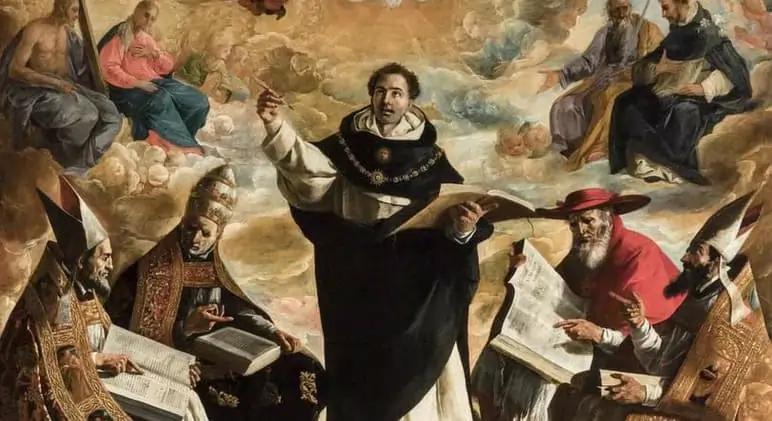


Is there a God? Is God good? Is the Bible true? How can I understand Scripture? What does it mean to be a follower of Christ? These are just some of the questions that theology seeks to answer. At Augustine Academy, we begin by exploring the truth of the Bible and the faith of the early Church. From this basis, we take a deeper look at the meaning of the Creed and how the early Church developed this statement of faith. We finish the year by hearing from different Christian thinkers who have grappled with the problems present in our current era, and who seek to express the truth of Christ to people in the modern world.
The Theology curriculum at Augustine Academy encourages a community of inquiry and critical thinking. We welcome students from our shared Christian heritage, other religious traditions, or none at all, and offer a space in which the fundamental experiences of our shared humanity can be discussed and debated. Such issues may include: the nature of God; the nature of the trinity; the relationship between God and mankind; and how one ought to live and act to have a full and flourishing life. Theology is indispensable to an individual’s understanding of their own faith, as well as their place in the Christian community. The material is rigorous and engaging, cultivating an appreciation for the richness of the Christian tradition. The self knowledge of our students is developed through the understanding and application of the virtues which underpin the character of all well balanced people.
Apply Faith to real world situations
Learn how Faith and Reason work together
Understand community and people around you
It is essential to learn in union with other disciplines
TERM 1
Theology exists within historical frame works and addresses real issues in the world.
This unit will explore the historical and theological significance of the letters of Saint Paul. Through this, a starting point will be
provided for understanding Theology from the point of view of one of the Church’s greatest theologians. Having completed this unit,
students will have:
TERM 2
The early church fathers are those theologians who, in the first four centuries of the church, contributed largely to defining the core tenants of the Christian faith. In second term students will study the works of these theologians, focusing primarily on the writings of Augustine, Jerome, Ambrose, Basil, Athanasius & John Chrysostom. This unit will provide students with a rich knowledge of the Christian heritage, and a comprehensive understanding the development of Christian thought.
TERM 3
The Bible timeline unit provides an overview of salvation history, studying closely the fourteen narrative books of the Bible, tracing the major people, places, events, & themes of salvation history. Students will learn about the six covenants God made with humanity, and their significance.
TERM 4
Moral theology is the study of God from a perspective of how man ought to live. It is distinct from dogmatic theology, which deals with the teachings of the Church doctrine. Moral theology examines such topics as freedom, conscience, love, responsibility, and law. Moral theology seeks to set forth general principles to help individuals make the right decisions and deal with the details of everyday living in a way that is in accordance with the Faith.


